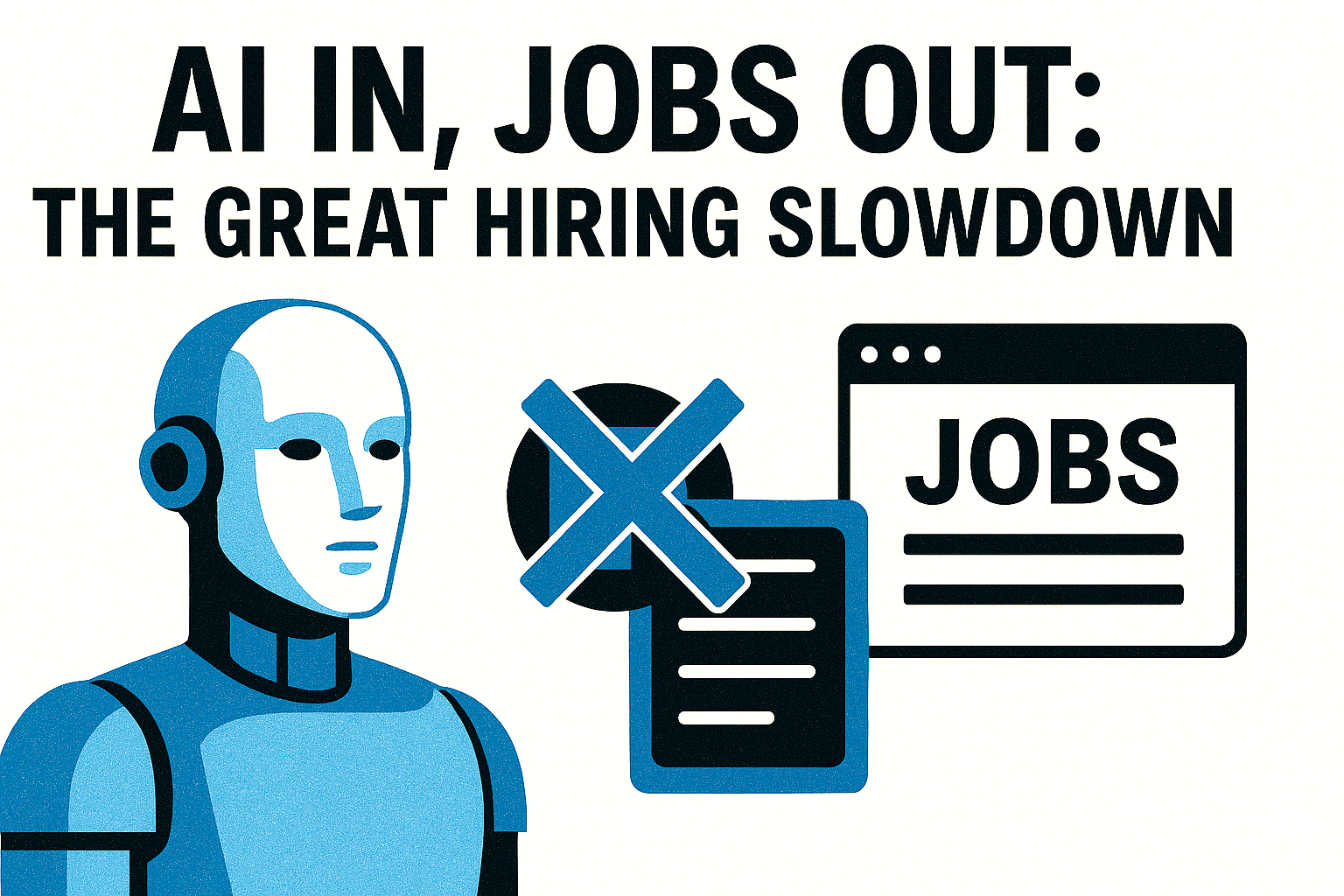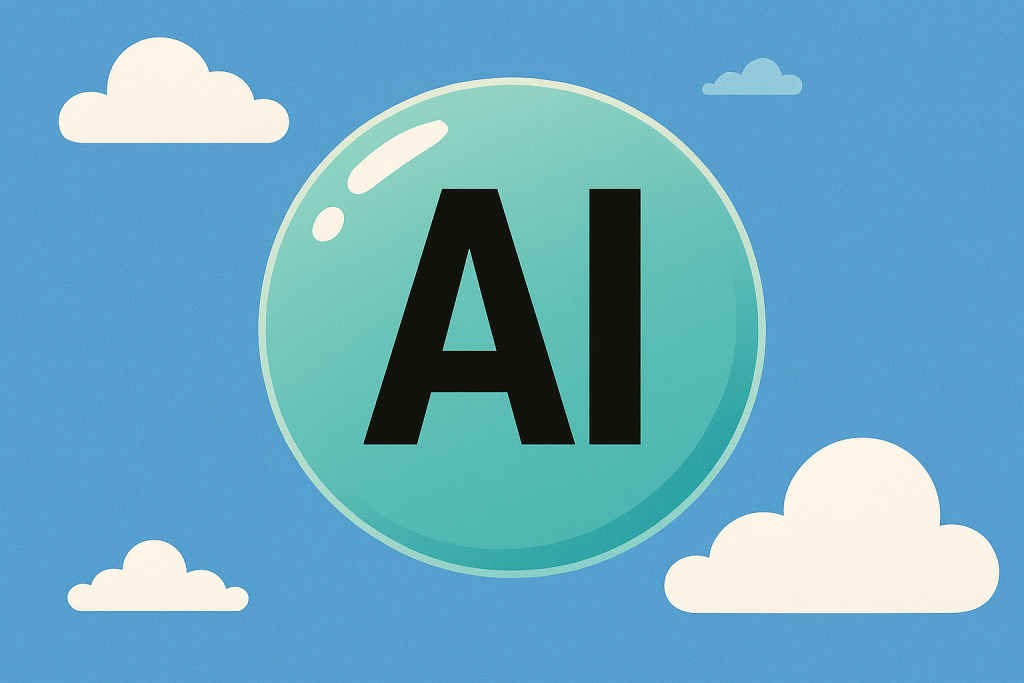Has BIG tech and AI stopped hiring? Not quite, though the hiring landscape has definitely shifted gears. Here’s the current take…
🧠 AI Hiring: Still Hot, Just More Focused
- Private AI firms like OpenAI, Anthropic, and Perplexity are still hiring aggressively, especially for Machine Learning Engineers and Enterprise Sales roles. These two categories alone account for thousands of openings.
- Even legacy tech giants like Salesforce are scaling up AI-focused sales teams—Marc Benioff announced 2,000 new hires just to sell AI solutions.
- The demand for ML Engineers has splintered into niche specializations like LLM fine-tuning, inference optimisation, and RAG infrastructure, showing how deep the rabbit hole goes.
🖥️ Big Tech: Cooling, Not Collapsing
- Across the U.S., software engineering roles dropped from 170,000 in March to under 150,000 by July.
- AI job postings fell from 80,000 in February to just over 50,000 in June, though July showed a slight rebound.
- Despite the slowdown, AI still makes up 11–15% of all software roles, suggesting it’s a strategic priority even as overall hiring cools.
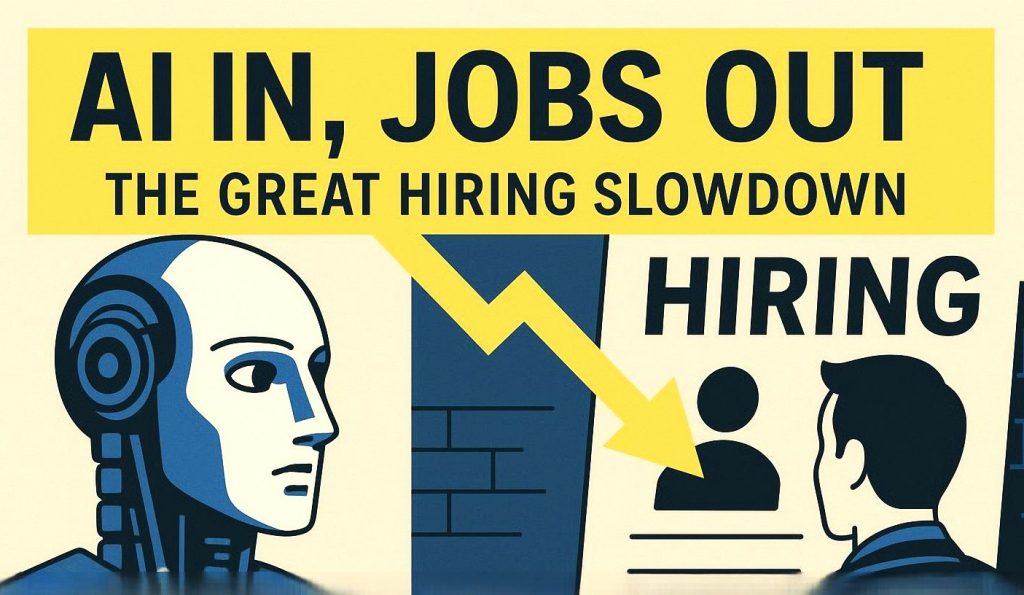
🌍 Beyond Silicon Valley
- States like South Dakota and Connecticut are seeing surprising growth in AI job postings—South Dakota reportedly jumped 164% last month.
- The hiring boom is expanding into non-traditional industries, not just Big Tech. Think biotech, retail, and even energy sectors integrating AI.
So while the hiring frenzy of 2023 has mellowed, AI talent remains a hot commodity—just more targeted and strategic.
The general reporting across August 2025 paints a clear picture of slower, more cautious hiring, especially in tech and AI-adjacent roles.
🧊 Hiring Has Cooled—Especially for AI-Exposed Roles
- In the UK, tech and finance job listings fell 38%, nearly double the broader market decline.
- Entry-level roles and those involving repetitive tasks (like document review or meeting summarisation) are increasingly at risk of automation.
- Even in sectors with strong business performance, such as IT and professional services, job opportunities have continued to shrink.
🧠 AI’s Paradox: High Usage, Low Maturity
- McKinsey reportedly says that while 80% of large firms use AI, only 1% say their efforts are mature, and just 20% report enterprise-level earnings impact.
- Most AI deployments are still horizontal (chatbots, copilots), while vertical use cases (full process automation) remain stuck in pilot mode.
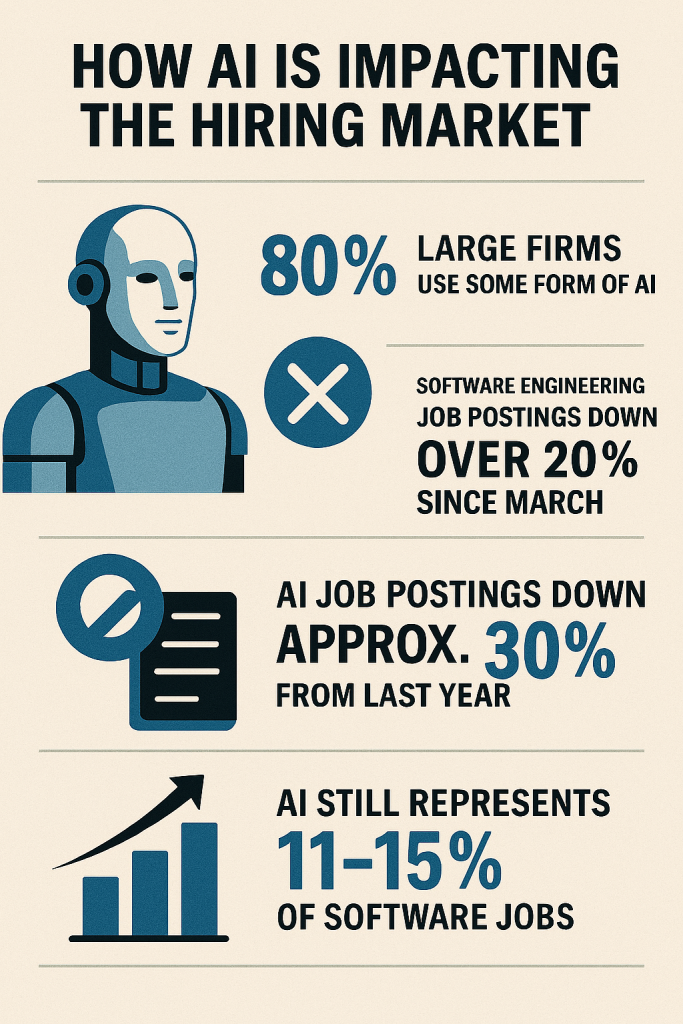
📉 Broader Market Signals
- Job adverts have dropped most for occupations most exposed to AI, especially among young graduates.
- Despite a slight uptick in hiring intentions in June and July, the overall labour market shows a marked cooling.
So yes, the general tone is one of strategic hesitation—companies are integrating AI but not rushing to hire unless the role is future-proofed.
AI In, Jobs Out: The Great Hiring Slowdown
It’s official: the AI revolution has arrived—but the job listings didn’t get the memo.
Across the UK and U.S., tech hiring has slowed to a cautious crawl. Once-bustling boards now resemble digital ghost towns, especially for roles most exposed to automation.
Software engineering vacancies dropped by over 20% in just four months, while AI-related postings—once the darlings of 2023—have cooled from 80,000 to barely 50,000.
The irony? AI adoption is booming. Over 80% of large firms now deploy some form of artificial intelligence, from chatbots to copilots.
Yet only 1% claim their efforts are ‘mature’, and fewer still report meaningful earnings impact. It’s a paradox: widespread usage, minimal payoff, and a hiring freeze to match.
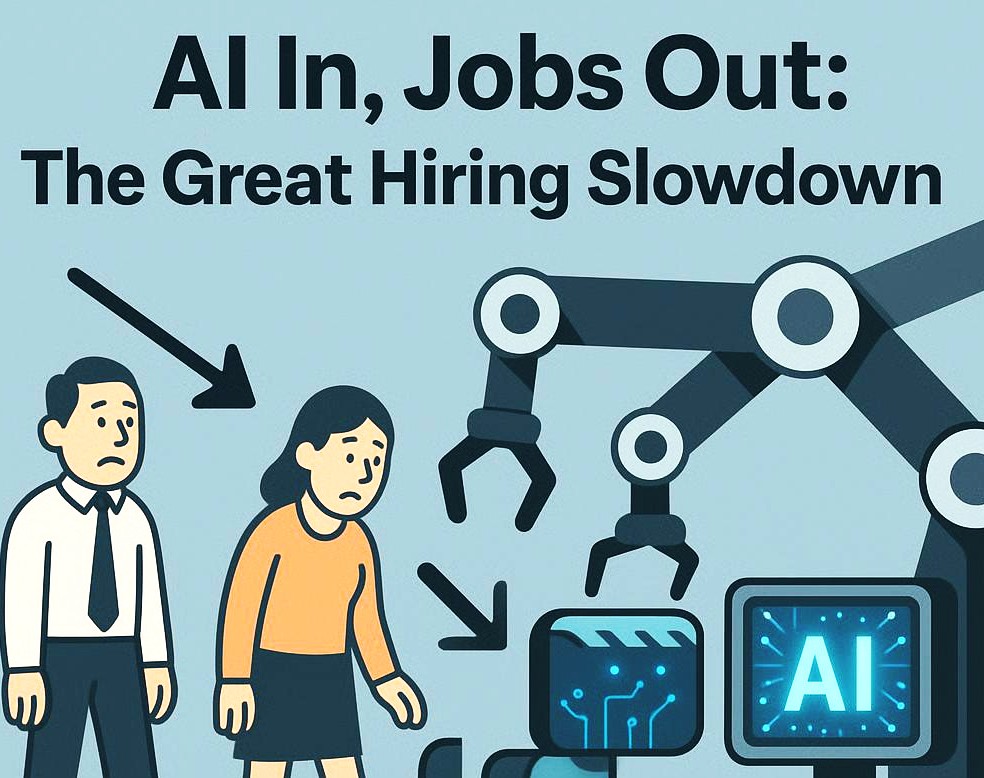
Even in sectors with strong performance—IT, finance, professional services—the job market is shrinking. Graduates face a particularly frosty reception, as entry-level roles vanish into the algorithmic ether.
Meanwhile, AI firms themselves are hiring with surgical precision: machine learning engineers and enterprise sales reps remain in demand, but the days of blanket recruitment are over.
Geographically, the hiring map is shifting too. South Dakota saw a 164% spike in AI job postings last month, while London and San Francisco quietly tightened their belts.
So, AI isn’t killing jobs—it’s reshaping them. The new roles demand fluency in automation, compliance, and creative problem-solving.
The rest? They’re being quietly retired.
For now, the job market belongs to the adaptable, the analytical, and the algorithmically literate.
Everyone else may need to reboot, eventually, but not quite just yet.


